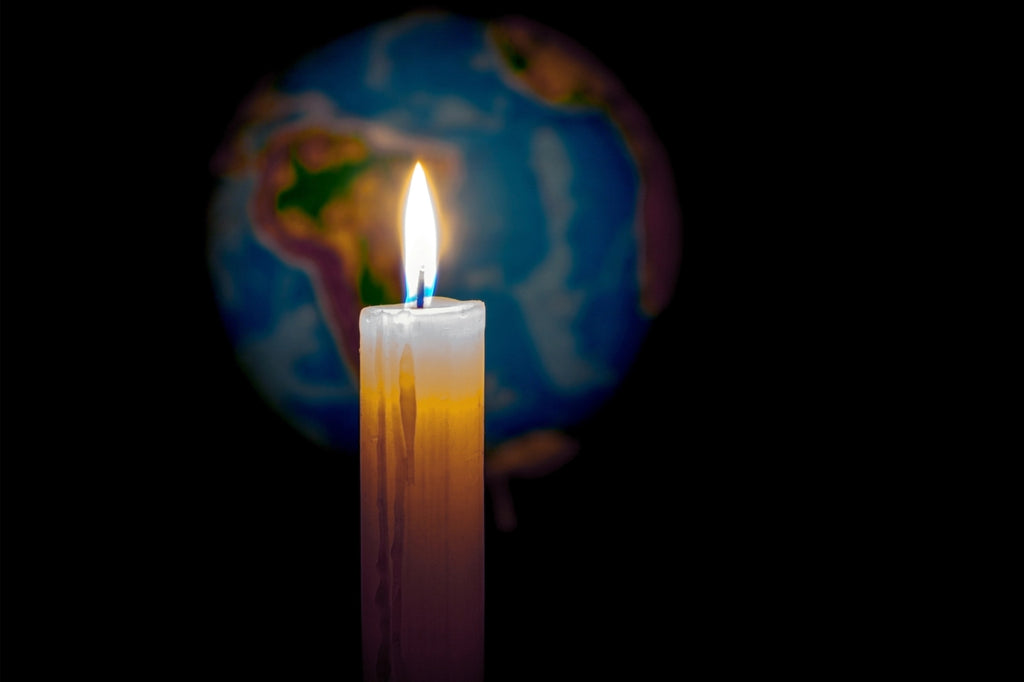Earth Hour: Turning Off the Lights to Take Action for the Planet in 2024

Minutes to Read: 4 Minutes

Every year, people around the world come together to be a part of Earth Hour, a global event that we all grew up with within our communities and turned off our lights for one hour. The idea is simple yet powerful: by turning off our lights, we can send a message about the urgent need to take action on climate change and show our commitment to protecting the planet.
It can even be considered a tradition and almost a routine for us to do this every year. However, Earth Hour has a lot more meaning behind why we turn off our lights and we’ve got everything you’ll want to know about what you can do differently (or go beyond the hour).
Summary
- What is Earth Hour?
- History of Earth Hour
- Why turn off the lights?
- What can you do during Earth Hour?
- Going beyond the hour
- The opportunity it gives us

What is Earth Hour?
Earth Hour is an annual event organized and started by the World Wildlife Fund (WWF) in Sydney, Australia back in 2007. What originally started as a lights-out event had grown and become an action that “millions of people across the world would join in raising awareness of the nature crises facing our planet”.
It takes place on the last Saturday of March and for this year, you can expect Earth Hour to fall on March 23, 2024, at 8:30 pm in your local time. During this hour, people are encouraged to turn off all non-essential lights in their homes and businesses to raise awareness of the environmental challenges we face and demonstrate their support for a sustainable future.
Earth hour is set around the time of the Spring and Autumn equinoxes for both hemispheres of the planet. But what does this mean and why 8:30 pm local? Because this is when our two hemispheres have the closest sunset, allowing everyone across the globe to be a part of it near the same time. This also makes having the lights out hard to notice.

History of Earth Hour
When the idea for Earth Hour started, it was when the WWF-Australia team was looking for a way to raise awareness about climate change. They decided to hold an event where people could turn off their lights for one hour, and the response was overwhelming. The first Earth Hour in Sydney saw 2.2 million homes and businesses turn off their lights, and the event quickly spread to other cities and countries around the world.
Since then, Earth Hour has become a global movement, with millions of people participating each year. The event has inspired individuals, communities, and governments to take action on climate change, and has helped to raise awareness of the importance of protecting the planet.
Why turn off the lights?
Turning off the lights for one hour might seem like a small gesture, but it sends a powerful message about the need to take action on climate change. By reducing energy consumption, we can help to reduce greenhouse gas emissions and slow the pace of global warming.
But the movement is more than just turning the lights off. It's an opportunity for us to reflect on the impact we have on the planet and think about the changes we can make to live more sustainably. It's a reminder that we all have a role to play in protecting the environment and creating a more sustainable future.
Bringing us together, Earth Hour has led to many accomplishments and other movements in the 16 years it has been around.

What can you do during Earth Hour?
There are a ton of things you can do besides turning off the lights and here are some ideas:
- Host a candlelit dinner: Turn off the lights and have a cozy candlelit dinner with friends or family.
- Stargaze: Head outside and take in the beauty of the night sky.
- Play board games: Turn off the screens and spend some quality time with loved ones playing board games or card games.
- Take a walk: Explore your neighbourhood or local park by taking a leisurely walk.
- Read a book: Use the time to catch up on some reading by the light of a candle or flashlight.
- Unplug: Turn off all electronics and enjoy a quiet hour of reflection or meditation.
Going Beyond the Hour
Earth Hour is just the beginning of what you can do. To make a real impact on the environment, we need to take steps every day.
If you need some help with where you can start making sustainable changes, these are some great starting points:
- Reduce your energy consumption: Make a conscious effort to reduce your energy consumption by turning off lights and electronics when you're not using them.
- Use sustainable transportation: Consider walking, biking, or taking public transportation instead of driving where you can. Even carpooling is a great option as one car is much better than multiple.
- Reduce your waste: Practice the 3 Rs (reduce, reuse, recycle) to minimize your waste where you can.
- Support clean energy: Consider using renewable energy sources like solar or wind power.
- Eat sustainably: Reduce your carbon footprint by choosing plant-based foods and reducing your consumption of meat and dairy.
- Make a eco-friendly swap: From the kitchen to the bathroom, there are many different alternatives to the products we use today that are plastic-free and even better than what we already use.
Putting together a green home is not easy and takes some getting used to but don't be surprised if you end up liking these changes even better.

The opportunity it gives us
Earth Hour is a reminder of the power that we have and an opportunity for us to come together as a community to make a difference. Whether it’s by turning off our lights, taking a walk in nature, or volunteering in our community, we can all do our part to make a more sustainable future.
It’s not just about what we do in this one hour but the actions that we take every single day. Making small changes in our lives is what lead to changes, just like how one event in Australia turned into something we all know and join in on.
- Tags: Earth Hour
0 comments


